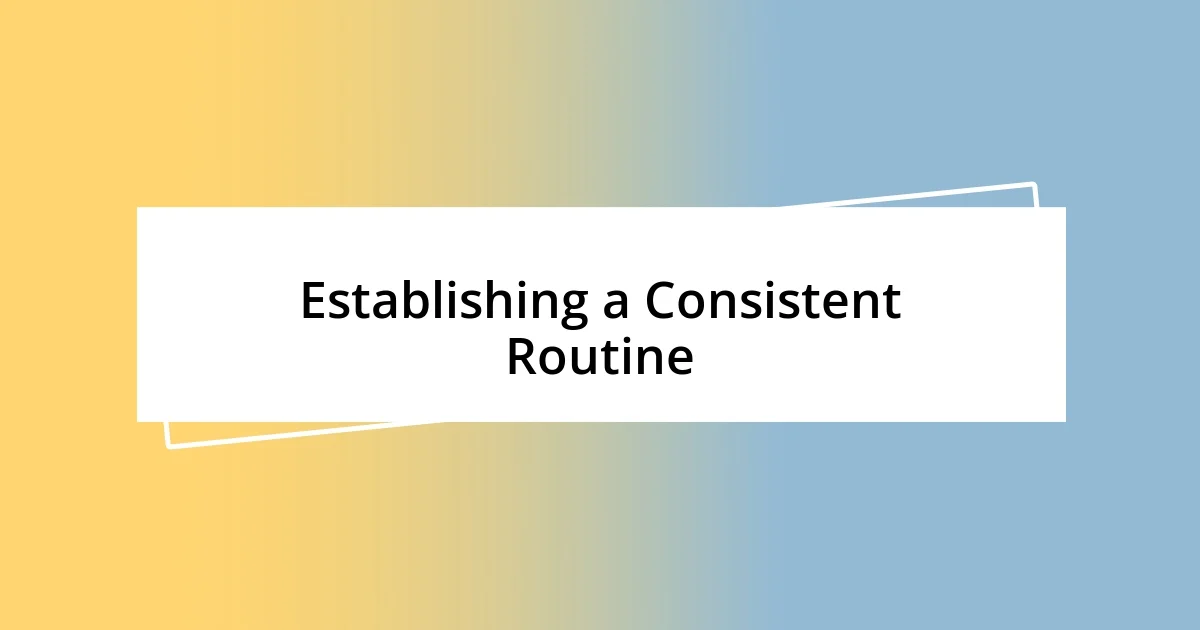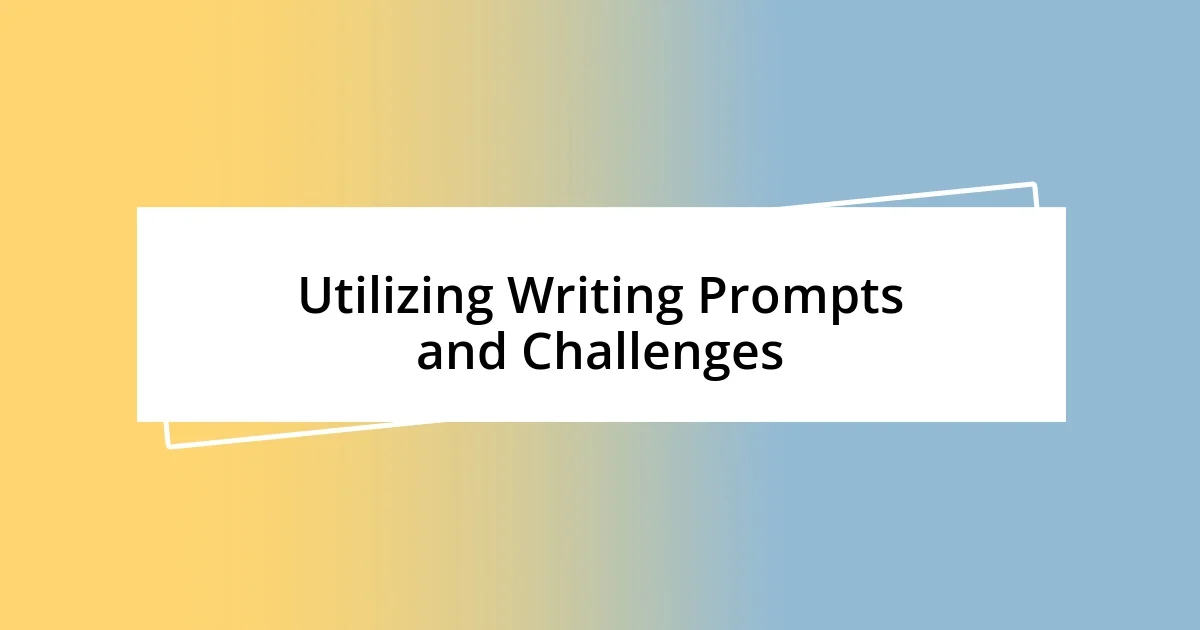Key takeaways:
- Finding your writing purpose is essential for motivation and connection with readers, providing a clearer direction in the creative process.
- Setting specific writing goals fosters organization and a sense of accomplishment, similar to having targets in a fitness routine.
- Seeking feedback and celebrating small wins can significantly enhance motivation and writing skills, creating a supportive and rewarding writing environment.

Finding Your Writing Purpose
Finding clarity in your writing purpose can be a transformative experience. I remember sitting at my desk, staring at a blank page, overwhelmed. The question echoed in my mind: “Why do I write?” It was only when I reflected on my experiences and my desire to share stories that the words began to flow.
When I think about purpose, it feels deeply personal. For me, writing has always been a way to connect with others. Have you ever felt that thrill when a reader relates to your words? That sense of sharing an intimate moment can be incredibly motivating. It’s this connection that drives me; knowing my writing might resonate or inspire someone else gives my work meaning.
Writing without purpose feels like sailing without a compass. Each time I tackle a new project, I ask myself what I hope to achieve and who I want to reach. This inquiry isn’t just a routine check; it’s a genuine reflection of my values and passions. Ultimately, understanding your writing purpose can fuel your journey, providing motivation through challenges and triumphs alike.

Setting Clear Writing Goals
Setting clear writing goals has been an essential practice in my writing journey. A while back, I realized that vague intentions weren’t enough to push me forward. After setting specific goals, like writing a certain number of words daily or completing a chapter by the end of the week, I felt a sense of direction. It was exhilarating to check off these milestones and witness my progress, which reinforced my motivation to keep going.
I often compare writing goals to workout routines. In the gym, it’s not just about being active; it’s about having a target, whether it’s lifting a specific weight or running a certain distance. When I set my writing goals in the same way, the process feels more organized and purposeful. Each completed goal brings a rush of accomplishment, fueling my creativity and encouraging me to tackle the next challenge.
Reflecting on how setting clear writing goals shaped my journey, I tend to see them as markers along a path. There’s something deeply satisfying about visualizing where I want to go and the steps I need to take to get there. Each goal I’ve achieved reaffirms my commitment and vision for my writing, and I can’t help but smile with pride as I look back on how far I’ve come.
| Goal Type | Description |
|---|---|
| Short-term Goals | These are specific, achievable targets like writing 500 words a day. They provide immediate motivation. |
| Long-term Goals | These encompass broader aspirations, such as publishing a book within the year. They guide my overall direction. |

Establishing a Consistent Routine
Establishing a consistent writing routine has been a game changer for my motivation levels. When I first started, writing felt sporadic and unstructured. It wasn’t until I carved out a dedicated time each day—often early in the morning before the world stirred—that the words began to flow effortlessly. I remember the quiet comfort of those early hours, sipping coffee and letting my thoughts spill onto the page. There’s a certain magic in creating that daily ritual; it’s as if the universe aligns to support my creative process.
To make my routine effective, I’ve found that consistency and environment are key. Here are some strategies that have helped me solidify my writing routine:
- Set a specific time: Choose a time when you’re least likely to be interrupted. For me, it’s the peaceful early mornings.
- Create a dedicated space: A clutter-free, inspiring workspace fosters creativity. I have my favorite spot adorned with a few personal items that spark joy.
- Limit distractions: Putting my phone on silent and closing unnecessary browser tabs helps me stay focused and engaged.
- Use timers: I often set a timer for focused writing sessions, usually 25 minutes, followed by a 5-minute break. This keeps my brain fresh.
- Reflect and adjust: Regularly assessing how my routine is working allows me to make adjustments that boost my productivity.
In the end, a consistent routine fosters not just discipline but a comforting structure that allows creativity to flourish. I’ve learned that establishing this rhythm feeds my motivation—turning writing into a loving habit rather than a daunting task.

Utilizing Writing Prompts and Challenges
Writing prompts and challenges have become some of my favorite tools for keeping my motivation alive. I remember stumbling upon a 30-day writing challenge online, and it ignited my creativity like never before. Each day offered a fresh topic, which not only pushed me to think outside the box but also made writing feel less overwhelming. It was like a daily gift—a way to explore new ideas without the pressure of perfection.
Engaging with writing prompts feels a bit like a game. When I find myself staring at a blank page, I often turn to a prompt, and suddenly, my imagination takes the reins. For instance, one day I wrote a short story based on the simple phrase, “a letter left unsent.” The emotions I explored were profound, and it reminded me that sometimes, all it takes is a small nudge to unleash a flood of creativity. Have you ever experienced that exhilarating moment when a couple of words completely reshape your perspective? That’s what prompts do for me—they inspire spontaneity and creativity.
I also love participating in online writing communities that host monthly challenges. Sharing my work and receiving feedback from others brings a sense of camaraderie. A few months ago, I joined a prompt-based group where we had to write about our happiest memory. The whole experience felt like a trip down memory lane, deeply nostalgic and fulfilling. This exchange of creative energy reminds me that I’m part of a larger tapestry of writers, each weaving their unique tales. It’s funny how a simple prompt can turn a solitary endeavor into a communal adventure, fueling my passion for writing even more.

Surrounding Yourself with Inspiration
Surrounding myself with inspiration has been pivotal in my writing journey. I remember one weekend when I decided to take a walk in a nearby park. The vibrant hues of autumn leaves whispered stories, sparking ideas that I rushed to jot down the moment I got home. Nature has a way of feeding my creativity; it’s as if every rustle and chirp carries a tale waiting to be told. Have you ever taken a moment to simply observe your surroundings? Sometimes, that quiet contemplation can lead to profound insights.
Spaces that resonate with creativity also make a significant impact on my motivation. I’ve filled my writing corner with art and photographs that evoke emotions and memories. Just last month, I hung up a piece of art that reminds me of a summer trip filled with laughter and connection. Every time I sit down to write, its presence nudges me toward joy and nostalgia, which ignites my creativity. I consider it my little motivational shrine. What elements in your workspace ignite that spark for you?
Lastly, I cherish the power of community in fueling my writing. Surrounding myself with like-minded writers has transformed my approach. Recently, I participated in a local writing group where we shared our goals and struggles. Hearing others articulate their journey reminded me that I’m not alone in my creative battles. When I left that meeting, I felt invigorated, as if I had just attended a pep rally for my soul. Joining communities or even just chatting with fellow writers can provide uplifting support, don’t you think? It’s a humbling reminder that inspiration often thrives in shared experiences.

Seeking Feedback and Accountability
Seeking feedback and accountability has been a crucial element in my writing journey. A while back, I decided to share my work with a few trusted friends who also happen to be writers. Their critiques felt like a warm hug at first—comforting yet challenging. I vividly recall one piece where their input on my character development opened my eyes to new depths I hadn’t considered. Have you ever received feedback that made you rethink your entire approach? It’s a transformative experience that reminds me how valuable different perspectives can be.
Another method I’ve implemented is setting specific goals with a writing buddy. A few months ago, I paired up with a fellow writer to exchange weekly check-ins. This arrangement has made a world of difference; knowing that someone else is counting on me to share my progress motivates me to keep writing. I remember those days when my buddy would text, nudging me with excitement about her own word count. It always sparked a friendly competition between us; who could write the most words in a week? It’s remarkable how having someone by your side can push you to elevate your game as a writer. Have you ever found accountability in a partnership that propelled you forward?
Lastly, I find immense value in participating in critique groups where writers share their work and offer constructive feedback. The first time I attended, I felt a swirl of nerves—what if they didn’t like my story? Yet, when I collected the feedback afterward, it was enlightening. Each piece of advice, even the tough love, helped me refine my craft. One member pointed out a plot hole I had overlooked, which turned out to be exactly what I needed to improve my story. Engaging with others not only sharpens my writing skills; it cultivates a sense of belonging within a community of creators. Have you considered joining a writing group? It could be just the thing that pushes your writing potential to new heights.

Celebrating Small Writing Wins
Celebrating the small wins in my writing journey has become a cherished habit. I remember the thrill of hitting my first 500 words in a day. It felt less like a milestone and more like a personal victory dance. Have you ever felt that rush of accomplishment when you see a tangible result of your effort? For me, it was a powerful reminder that every word counts in the broader tapestry of my creativity.
I also love to reward myself for finishing a challenging chapter. One rainy afternoon, after struggling with a particularly complex scene, I treated myself to my favorite coffee shop. Sipping my latte while grinning over my freshly drafted pages reminded me that celebration doesn’t have to be extravagant; it can be a simple moment of joy. How do you celebrate your small victories? I find that even the simplest rewards can motivate me to cherish my journey as much as the destination.
Reflecting on these small achievements has not only boosted my motivation but also built a positive framework for my writing practice. When I look back and see the progress, I often catch myself smiling at the memories of those milestones. Each small win adds a layer of confidence and a sprinkle of excitement for what’s to come. Have you ever next to forgotten how far you’ve come while caught up in the daily grind? Taking a moment to acknowledge those wins can reignite the passion that fuels our creative endeavors.














